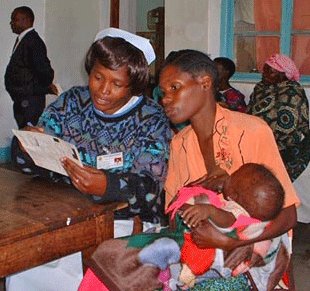Resource Spotlight: Crisis in Human Resources for Health Care and the Potential of a Retired Workforce: Case Study of the Independent Midwifery Sector in Tanzania

Photo by: J.Dunlop, USAID
The human resource crisis in health care is an important obstacle to attainment of the health-related targets for the Millennium Development Goals. One suggested strategy to alleviate the strain upon government services is to encourage new forms of non-government provision. Detail on implementation and consequences is often lacking, however. This article examines one new element of non-government provision in Tanzania: small-scale independent midwifery practices. A multiple case study analysis over nine districts explored their characteristics, and the drivers and inhibitors acting upon their development since permitted by legislative change.
The key messages of this article are:
- Detail on implementation and consequences of non-government health care provision in specific contexts are important for guiding policy on human resources for health.
- Following deregulation in Tanzania, independent midwifery practices began to be established by a new workforce of retired Nursing Officers offering personalized care in under-served areas, but delivery coverage is low.
- Sustainability and utilization in poor communities requires supportive measures such as reform of the costly registration procedures and consideration of on-going financing arrangements such as micro-credit, contracting or vouchers. [Adapted from author]
View this resource.
The HRH Global Resource Center has other resources on this topic including:
- Description of the Private Nurse Midwives Networks (Clusters) in Kenya: a Best Practice Model
- Potential of Private Sector Midwives in Reaching Millennium Development Goals
- Private Health Sector Quality Improvement Package: Implementation Guide for Midwives
For additional resources on this topic, visit the Midwives and Private Sector subject categories.
Past Resource Spotlights
- 5910 reads




